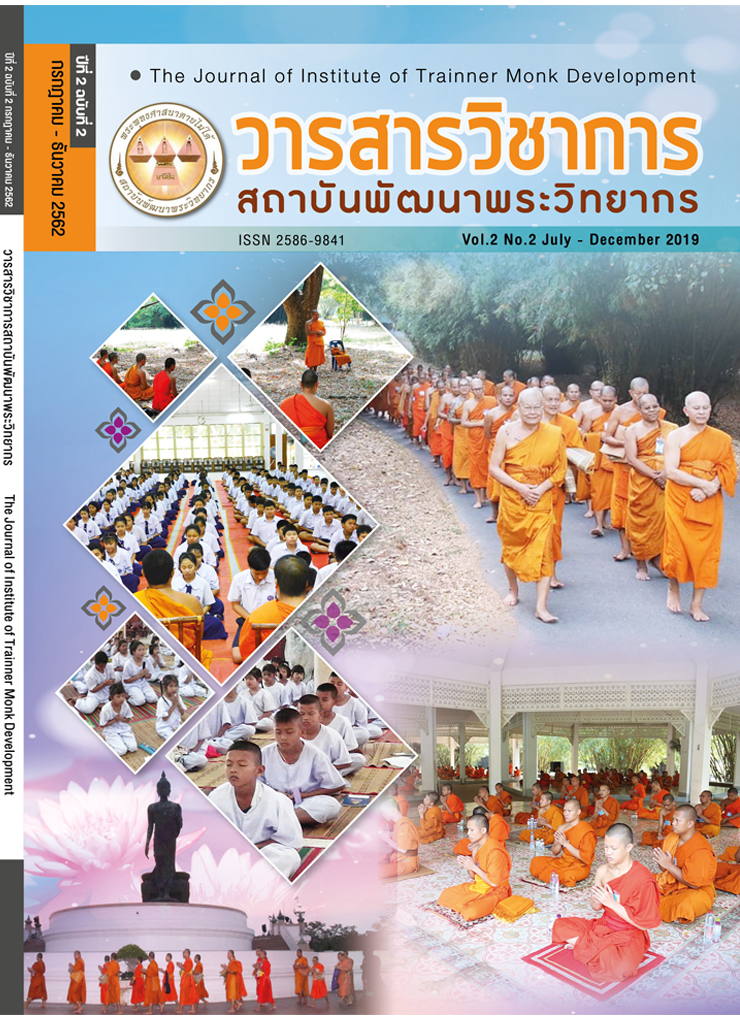Aged Society’s Sustainable Shared Value in Thailand
Main Article Content
Abstract
In 5 years, Thailand will have an increase in elder population by 14% of the total population which will lead Thailand to be an aged society completely by 2024 as United Nation projection. As a member of Southeast Asia, Thailand facing with population structural change and becoming full-fledged aged society, is the second country from Singapore. Currently, several organizations are aware and prepare how to deal with Thai social structural change in the near future. There
are consecutive declines of fertility and mortality rate in contrast to more increase of “high life expectancy” population. Those are the reasons why the population ageing has substantially increased. Appropriately, we must cooperate and well arrange for entering into the aged society which is considered as a big issue challenge. These elder people are not social burden. They are a group of people who have full potential of expertise and knowledge in various fields that the next generations could beneficially learn from them. Therefore, it is a must to accommodate the elders to step into the aged society with happiness and self-esteem. Creating good attitude through the activities will enhance shared value of the elders “Living happily and being self-esteem role model”. Building the attitude is the important responsibility for all sectors. Both the public and private sectors start promoting good attitudes for the elder as valuable and happy person. In the other word, focusing on their health, perceiving self-worth, loving oneself and understanding the truth of the world unexpectedly should be raised as a common belief. Learning management has created elder participation in the technological society. We found the important factors in forming the sustainable solution for aged society by making the elders realize and recall their self-esteem through direct experiences from their lifestyle including various ageing activities. There is an important part to make Thai society recognize that the elder group which has not only self-reliance but also the potential to support and help Thai society. At the same time, Thai society has offered the supportive activities, to promote the shared values of the elders in Thailand where allow the elders to live happily and to be a sustainably valuable role model.
Article Details
บทความที่ได้รับการตีพิมพ์เป็นลิขสิทธิ์ของวารสารวิชาการสถาบันพัฒนาพระวิทยากร
ข้อความที่ปรากฎอยู่ในบทความที่ได้รับการตีพิมพ์ในวารสาร ถือเป็นความรับผิดชอบของผู้เขียนบทความ และข้อคิดเห็นนั้นไม่ถือว่าเป็นทัศนะและความรับผิดชอบของกองบรรณาธิการวารสารวิชาการสถาบันพัฒนาพระวิทยากร
References
พรชุลีย์ นิลวิเศษ. (2562). นันทนาการสำหรับผู้สูงอายุ. [ออนไลน์] แหล่งที่มา: https://www.stou.ac.th/stoukc/elder/main1_10.html. [24 ธันวาคม 2562].
วีรณัฐ โรจนประภา. (2560). เปิดโครงการอัศวินผมขาว จุดเริ่มต้นผู้สูงวัยคุณภาพ. [ออนไลน์] แหล่งที่มา: https://www.bangkokbiznews.com/news/detail/783103. [23 ธันวาคม 2562].
ศิริวรรณ อรุณทิพย์ไพฑูรย์. (2560). แผนมาดริดด้านผู้สูงอายุ: กรอบสหประชาชาติกับประเทศไทย The Madrid International Plan of Action on Ageing: the United Nations Framework for Thailand. [ออนไลน์] แหล่งที่มา: https://journalggm.org/ article_pdf-PA19015.pdf/. [23 ธันวาคม 2562].
สิริกาญจน์ กระจ่างโพธิ์, มารุต พัฒผล, วิชัย วงษ์ใหญ่และจิตรา ดุษฎีเมธา. (2561). การพัฒนารูปแบบเสริมสร้างการเห็นคุณค่าในตนเองของผู้สูงอายุโดยใช้กิจกรรมเป็นฐาน. วารสารแพทย์นาวี. 45(2) พฤษภาคม-สิงหาคม 2561. [ออนไลน์] แหล่งที่มา: https://www. tci-thaijo.org/index.php/nmdjournal/article/download/158610/114882/. [24 ธันวาคม 2562].
สำนักงานกองทุนส่งเสริมสุขภาพ. (2558). ทันกระแสสุขภาพ 5 กิจกรรมทางกาย เพื่อสูงวัยแข็งแรง [ออนไลน์] แหล่งที่มา: https://www.thaihealth.or.th/Content/30044-5%20 [24 ธันวาคม 2562].
TCDC Resource Center. (2562). Aging Society VS. Aged Society in Global and Thai Context. [ออนไลน์] แหล่งที่มา:http://resource.tcdc.or.th/ebook/AgingSociety_ Report_official.pdf. [24 ธันวาคม 2562].


